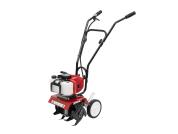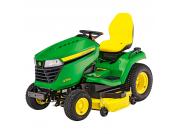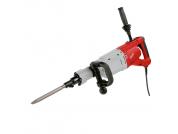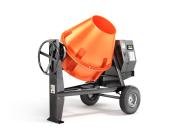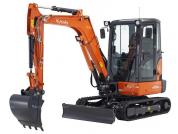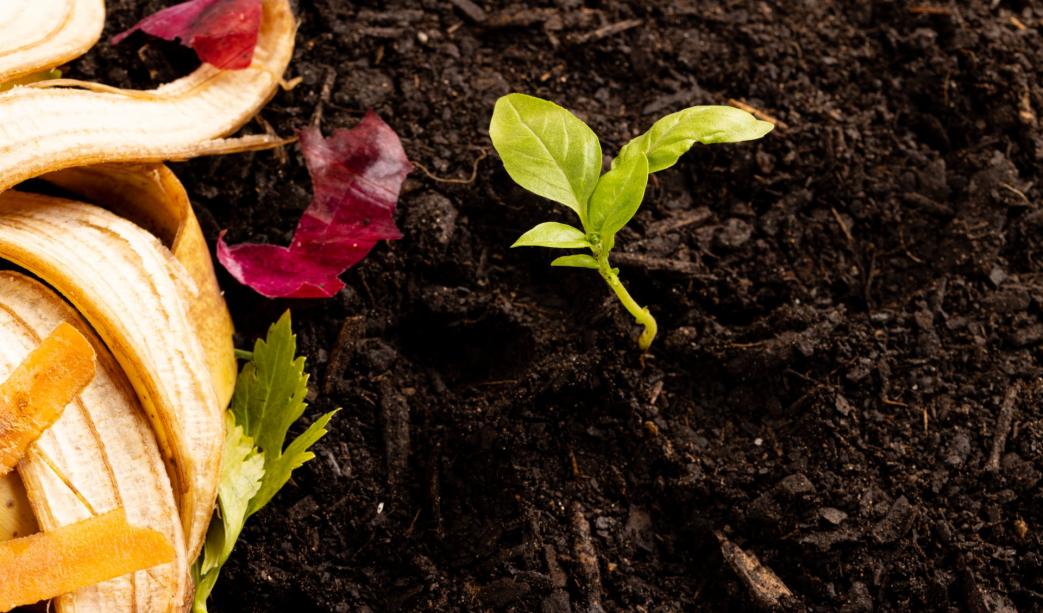
Garden Nutrition 101: A Close Look at the Benefits of Compost and Manure
As we approach spring, our gardens are on the brink of becoming greener and more vibrant. However, what steps should we be taking to prepare? In this article, we will be speaking about garden nutrition and how you can choose between compost and manure to enhance your outdoor space.
Compost: Nature’s Black Gold
Compost, otherwise known as ‘black gold’, is a nutrient-rich organic matter which can play a pivotal role in gardening practices. According to RHS.com, ‘organic matter is sometimes referred to as ‘soil improver’ or ‘soil conditioner’- and compost can do just that. If you are looking for your garden to thrive this spring, compost can be a great addition. Compost is created through the decomposition of plant or kitchen waste.
Benefits of Compost
By adding finished compost to your soil, it can improve the overall structure and health of your plants. Compost can promote much better aeration and water retention. This can avoid certain plant killers, such as dehydration and root rot.
Another key benefit, and as mentioned above, is the nutrients that compost can provide to your growing seedlings. Containing nitrogen, phosphorus and potassium, compost allows your plants to foster a healthy amount of growth as we enter this new season.
Compost can also enhance the microbial activity present in the soil. This will allow your plants to be able to uptake the extra nutrients that the compost is providing. With this additional microbial activity, your plants will also have a better chance of suppressing diseases.
Manure: A Natural Fertiliser
Manure stands out as another widely embraced option, with certain individuals choosing to utilise it in lieu of compost. Manure is created slightly differently from compost, but is still considered a great, organic alternative for garden health. Manure is derived directly from animal waste, and serves as an ideal natural fertiliser.
Benefits Of Manure
Similar to compost, manure is nutrient-rich. Containing nitrogen, phosphorus, and potassium, these elements can all be crucial elements to plants development. Along with these additional nutrients, manure can also improve the soil’s texture. This allows for much conducive root growth.
Again, similar to compost, manure offers soil conditioning, meaning that these extra nutrients will be absorbed more effectively. Both manure and compost are ideal if you are looking to embrace more sustainable gardening practices in 2024. As mature is made from recycling animal waste, this minimises the environmental impact of keeping your garden or estate green and lush.
Best Practices for Application
So, now we’ve explained the difference between manure and compost, how do you apply them to your garden? Your professional gardening team will bring their expertises to your outdoor space when it comes to using fertiliser, as getting the blend correct can be slightly challenging. For example, when blending either compost or manure into the soil, it’s important to mix a ratio of 1:1. Some professionals may also opt to do a soil test. A soil test will assess several key parameters such as pH level, nutrient levels, organic matter content, soil texture, and presence of any contaminants like heavy metals.
When applying your organic fertiliser, timing will also need to be considered. Applying manure or compost now would be ideal, as we move into spring and growth begins. We would also recommend not using these organic fertilisers in late summer or autumn. Colder temperatures suppress any biological activity within the compost. The repeated freezing and thawing that the UK weather puts our plants through may destroy the tough plant tissues. This could up the potential for root rot and prevent your plants from thriving come spring.
Another consideration is what manure to use. If you have your heart set on using manure as your organic fertiliser of choice, your professional gardening team will not avoid using it when it’s fresh. The Spruce details how fresh manure is ‘high in nitrogen and ammonia’ and can actually scorch your plant’s roots, which can introduce harmful pathogens. Before use, your professional garden team would recommend allowing the manure to compost for several months before using it.
Considerations and Precautions
Along with the application of your natural fertiliser, there are a few other considerations and precautions for manure and compost.
Contact a Professional Gardening Team
Firstly, we would always suggest getting in contact with a local gardening service for professional advice ahead of deciding what fertiliser to use in your outdoor space. A professional will be able to offer a new layer of insight into what will make your plants thrive this spring.
Sourcing Your Natural Fertiliser
Secondly, it is important to consider where to source your manure or compost from. Again, a team of professionals will be able to advise on where would be the best place to get your product. Where your compost or manure comes from can truly affect the quality of. We would suggest choosing compost or manure from a selection of reputable sources to ensure quality and minimise the risk of contaminants.
Temperature Concerns With Natural Fertiliser
To decompose correctly, your piles of compost will need to reach a certain temperature. But, how do you monitor compost temperature? Well, your professional gardening team can do this for you. They will insert a temperature probe into the centre of the pile to get the most accurate reading. They can then monitor and adjust the temperature regularly based on these readings. The optimal temperature range for composting is between 54°C and 71°C.
BZ Gardens – Surrey Garden Specialists
As spring approaches, now is the perfect time to start preparing your garden for the season ahead! At BZ Gardens, we understand the significance of garden upkeep all year-round. Whether you’re aiming to enhance the vibrancy of your outdoor area in anticipation of hosting gatherings this spring or simply want to revitalise your garden, our team of experts are here to help. Get in touch with us today at 01483 967160 to discuss how we can assist you.




